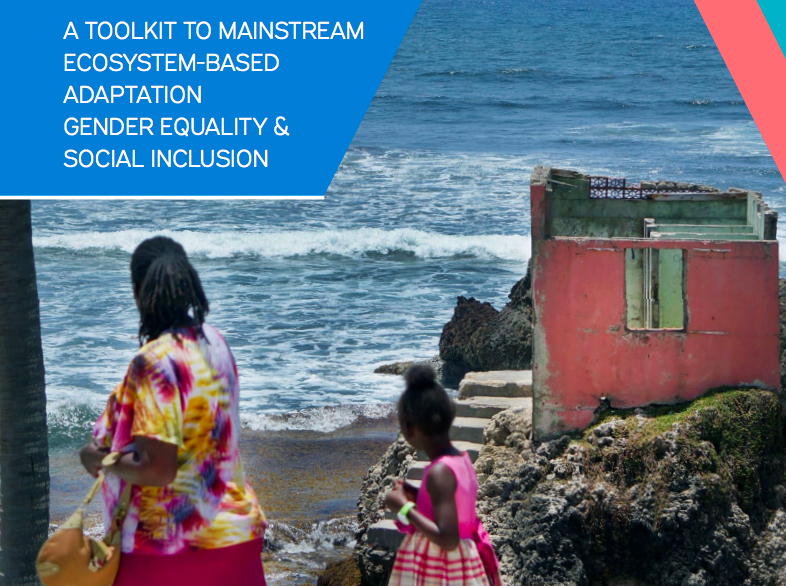OECS Commission Launches Toolkit on ‘Building Resilience with Nature and Gender’ to Mark World Environment Day 2020
OECS Media Release
Each year since 1974, the international community has observed June 5 as World Environment Day (WED). This year, WED is being observed under the theme, “Time for Nature”, with the focus being placed on nature’s role in supporting life on Earth and human development.
To mark WED 2020, the OECS Commission is pleased to announce the release of a publication entitled: "Building Resilience with Nature and Gender in the Eastern Caribbean: A Toolkit to Mainstream Ecosystem-Based Adaptation, Gender Equality & Social Inclusion."
This Toolkit was developed under an Adapt’Action-funded project and is intended to support climate change practitioners and decision-makers in mainstreaming Ecosystem-based adaptation (EbA) and gender equality and social inclusion (GESI) considerations into climate change adaptation-related policies, plans, and on-the-ground activities. It provides detailed guidance on how the GESI aspects should be taken into account as part of the process of mainstreaming EbA and formulating concept notes for funding.
The ultimate purpose of the Toolkit is not to create new tools, as many of these have already been developed, but, rather, to gather, select and /or adapt available methods and resources that are most relevant for design and implementation of EbA-GESI-responsive adaptation actions in the Caribbean context.
Director General of the OECS, Dr. Didacus Jules, stated:
"This Toolkit arrives at a time when the Islands of the Eastern Caribbean are placing increasing focus on the concept of resilience. The fact that it promotes the integration of ecosystem-based approaches, gender equality and social inclusion makes it highly relevant, not just for climate change, but also for resilience-building in the broader socioeconomic context."
Crispin d’Auvergne, Programme Director for Climate and Disaster Resilience Management at the OECS Commission, added:
“Over the years, we have seen many environmental and natural resource problems addressed in ways that have paid scant attention to nature itself or to GESI considerations. We are of the firm view that climate change adaptation can only be sustainable in the long term if we address this imbalance. The OECS views this Toolkit as a means for helping to do so.
Given the theme for WED 2020, we consider it fitting to launch the Toolkit in observance thereof. It is our sincere hope that policy-makers and practitioners in the field will come to regard this Toolkit as an indispensable resource."
Access the Toolkit here!

